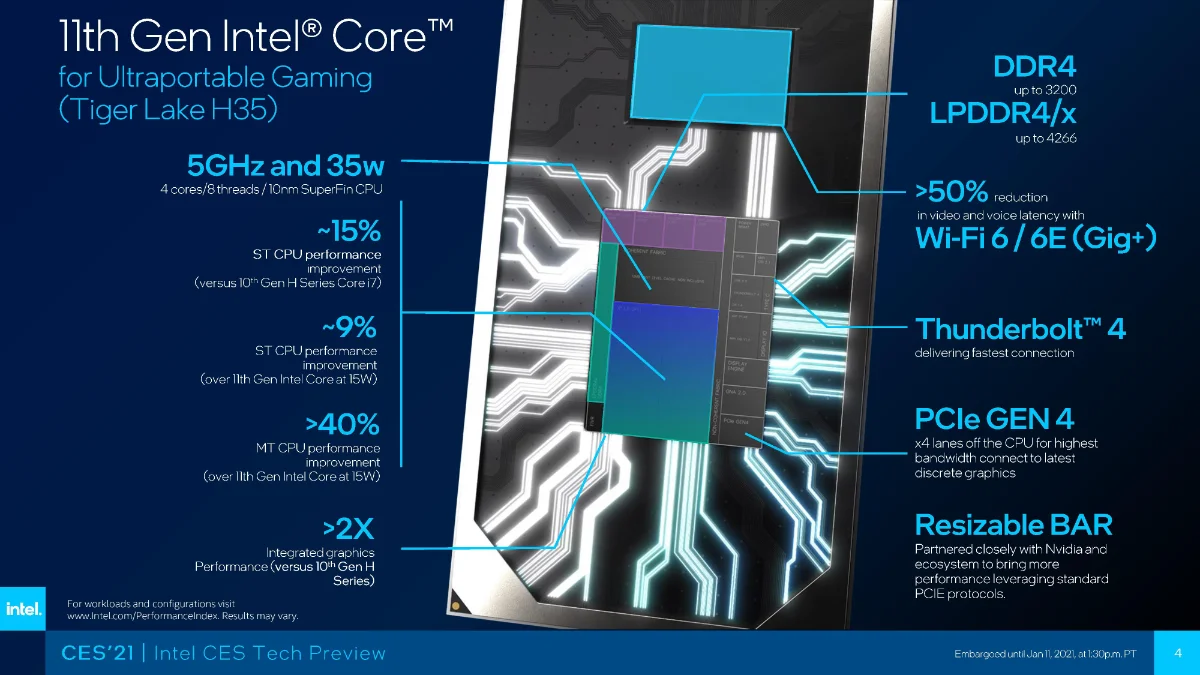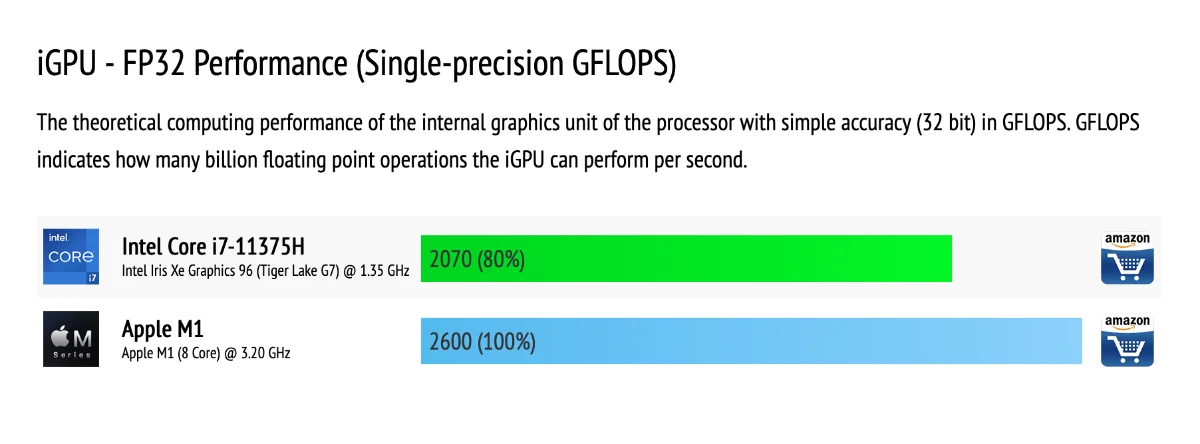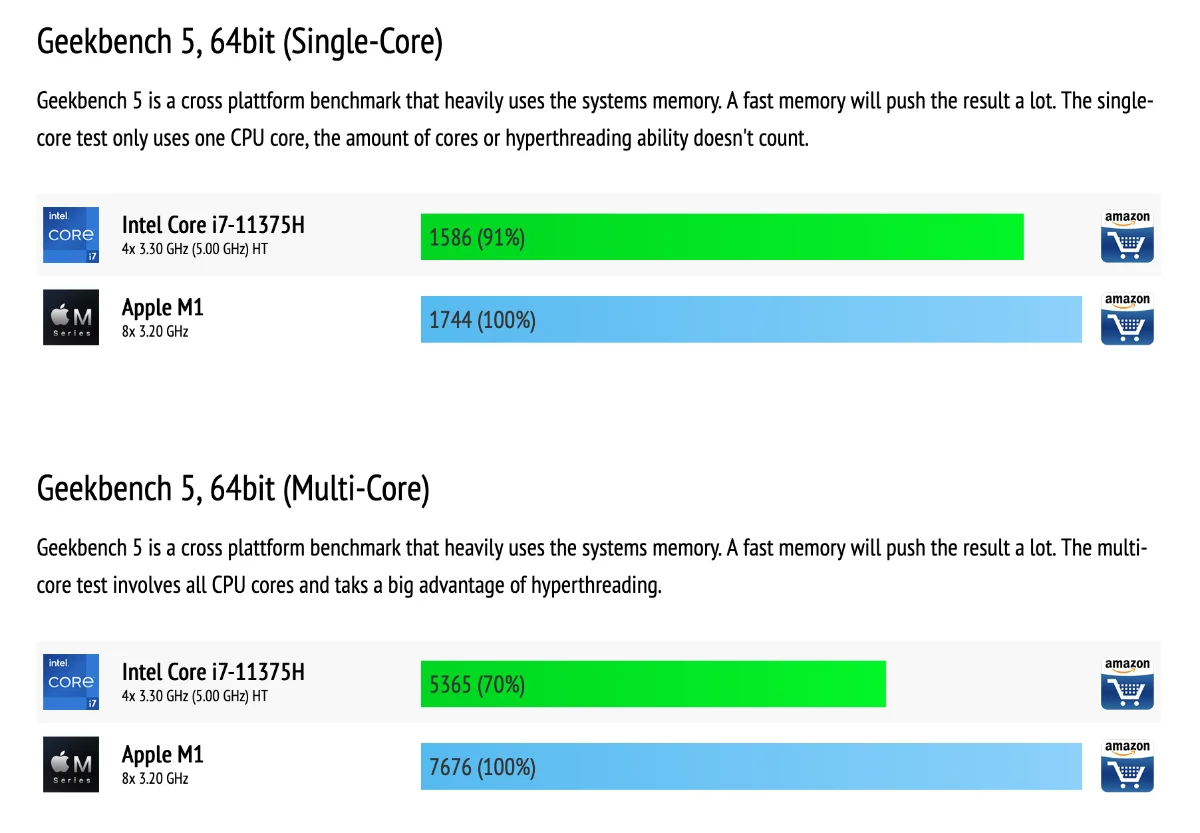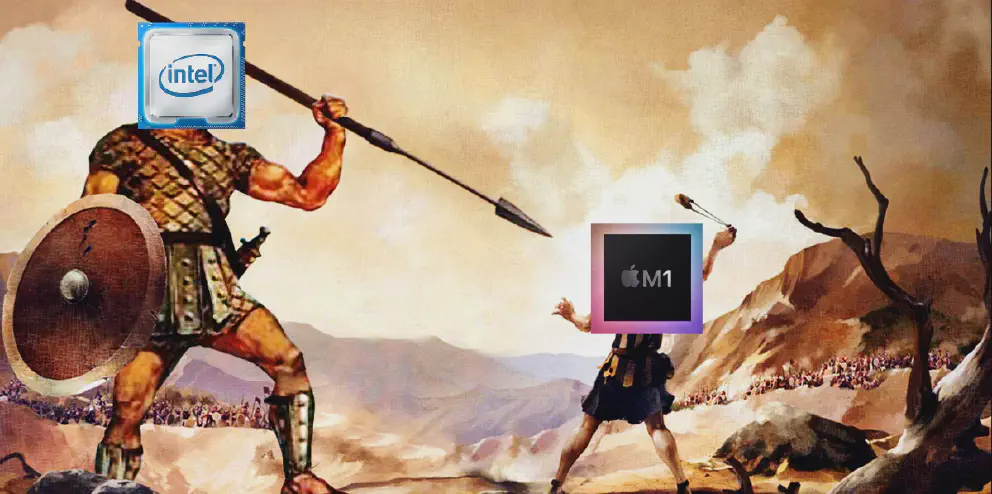On June 2020, during WWDC, Apple announced that the will move their entire platform away from Intel to their own Apple Silicon with the first product coming before the end of 2020. By November 2020, Apple launched their first Apple Silicon for Mac with updated versions of their lowest end offerings: the base Mac Mini, the base MacBook Pro and the MacBook Air. Everybody mind was blown away by the performance not only in terms of raw power but also battery life. It as though Apple has found new technology that never has seen before.
Intel was plagued by delivery delays and competition from AMD and now Apple. With Microsoft experimenting with ARM chips with the SQ2 in the Surface Pro X, Intel is desperate for a success story. Enter the 11th Generation Core chips, the empires latest strike against the rebels.
Plug: Audiable allows you to listen to your favourite books while on the go. Sign up today for a free 30-day trial. Click on the link below:-
Intel 11th Gen Core i7 updates

The first Intel 11th Generation Cores was launched in September 2020 during the global pandemic. Intel lineup slowly update and eventually come to the chip that we are interested in: the Intel 11th Gen Core i7-11375H which was launched in Q1 2021. At $428 per chip, it aims to be on a high-end laptop, has max TDP of 35W and goes to 5.0 GHz in Turbo mode or 3.3 GHz in sustained performance. It has integrated Xe graphics, a new generation of graphic cores by Intel.
One of the launch feature of Intel 11th Generation Core processor is the utilization of SuperFin technology in the manufacturing process. It is a continuation of the FinFET Device, which it self a technology iteration of Intel manufacturing process over 2 decades.
Apple M1
The Apple M1 is first introduced in November 2020 during a special event. It was featured as Apple first product that transition from Intel to Apple own’s solution: Apple Silicon. The first laptop chip by Apple is the M1 which featured 8-core, 4 high-performance cores and 4 high-efficiency cores, 16-core integrated graphics, a Neural engine and all connected through their own I/O controller, the Apple Fabric.
The major difference between Apple and Intel is Apple is not a chip merchant so details about the M1 chips beyond the marketing material is scarce. Apple instead prefer to feature complete systems so the M1 chip is marketed together with MacBook Air, MacBook Pro 13" and Mac Mini which are the launch product at that time. Apple also prefers to tout their tight integration between software and hardware which results in a product that is harmoniously just works.

Results


Despite Intel processor having a higher TDP, higher turbo frequency and higher base frequency, The M1 still manage to beat Intel higher end laptop processor even in single threaded performance. It is more impressive the the M1 has a TDP around 5-10W which allows Apple to introduce a fanless laptop, which is the MacBook Air.
What this makes even more exciting is the prospect of even more advancement from Apple since the M1 is just the lowest end of Apple chip design for the lowest spec in their lineup. The highly anticipated and rumored March Event of 2021 which leakers allegedly claim that Apple will launch their new MacBook Pro and iMac which will feature the higher end M1X chip put Apple chips in an even higher performance bracket. Rumours aside, the only thing we can do for now is to wait.
Intel future response
Despite Intel shrugging off Apple as a lifestyle company, Intel has seen the competition and decide to take drastic action. Whether it is a realization that it is too late or not, only time will tell. Intel has replace their Chief Architect and even their CEO, and there are new rumors surrounding future 12th Generation Core chips code name Alder Lake.
One of the key features that Alder Lake will have is the configuration of two different cores, one that is run on high-performance and the other that runs on high-efficiency. This hybrid cores which is the normal setup for mobile chips for years is the first known Intel design to feature such configuration. Another rumored feature will be a an upgraded graphic cores to rival the M-series performance.
With Microsoft experimenting with ARM chips with the Surface Pro X, Intel, despite being the chip behemoth that it is, is fighting to ensure its long term survival in the microprocessor game. Intel is no longer the king of the hill, but a runner in a marathon. If Intel does not keep up the pace, Intel which is the leading edge king of microprocessor might be the the case study of how giants might fall.
Plug
Help grow this site and my family by visiting my affiliate links below:-
Phones:-
- Samsung S21 - Amazon
- Samsung A51 - Amazon
- Huawei Mate 40 Pro - Amazon
- OnePlus 8 Pro - Amazon
- Oppo Find X2 Pro - Amazon
- Xiaomi Mi 10 Pro - Amazon
- iPhone 12 mini - Buy at Amazon
- iPhone 12 - Buy at Amazon
- iPhone 12 Pro - Buy at Amazon
- iPhone 12 Pro Max - Buy at Amazon
Accessories:-
- USB-C charger - 100W - Amazon
- Apple USB-C 20W charger - Amazon
- Anker USB-C to Lighting Cable - Amazon
- Apple Pencil
- Magic Keyboard
- Smart Folio
- Smart Cover - Amazon
- AirPods
